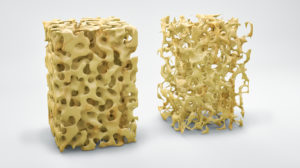November 7, 2017
Scoliosis Progression and the Immune Response. Can Supplements Help?
Scoliosis Progression and the Immune Response; Can Supplements Help?
Scoliosis has long been treated as an orthopedic condition, with limited success. Researchers continually provide validation that scoliosis is much more than a curvature of the spine, most recently, the British Medical Journal published a study entitled, “Understanding the role of the Immune System in Adolescent Scoliosis: Immunometabolic Connections to Scoliosis..” The study’s aim was to identify the mechanisms of how inflammation caused fibrosis (scaring) and remodeling (fatty infiltration of the concavity musculature), and how the cascade of the immune response is associated with progression of the scoliosis. The authors discuss the cross talk communication between the circulating immune cells (macrophages) and the muscle. This same cross talk communication happens between the bone cells (osteocytes) and macrophages.
The study highlights the importance of having an appropriate immune response and how inflammation can be tipped towards overreaction through intermediary proteins called cytokines. Successful Scoliosis treatment without surgery necessitates that the immune response be curtailed or influenced through diet and lifestyle modifications. Supplementation directed toward cytokine management may provide a missing piece of the puzzle to successful outcomes.
Functional Medicine offers a clinical solution to control cytokine production, in particular, the down regulation of pro inflammatory cytokines may provide the clinician with help to tip the scales in the patients favor.
Here are a few basic concepts that everyone can benefit from.
- Vitamin D is a hormone that is produced and used by the Osteocytes (bone Stem Cells). Low Vitamin D drives the Osteocytes to become Osteoclasts, which break down the bone matrix. This is significant if your lab results reveal low Vit D, and especially if you have low bone density for Age. Supplementing with Vit D and its co-factors like Vitamin K2 is important especially if your lab levels indicate.
- Curcumin (Tumeric) and Resveratrol are well known supplements with many potential benefits. Studies have shown these compounds effectively modulate the immune response to reduce overproduction of pro inflammatory cytokines.
- Trizomal Glutathinone is a master antioxidant and can become depleted when cytokine production is high. Replacing Glutathione through supplementation can aid in reducing the ongoing inflammatory process associated with progressive Scoliosis.
- Strontium Citrate is a compound with very similar properties to Calcium. Strontium supplementation has been shown to improve bone density and may be safer than Calcium supplementation (for men). Strontium should be recommended by a professional as it competes with calcium for absorption and timing of dosing will have a significant effect on its absorbability.
This post is not meant to be a prescription for supplements. Bring this to your provider and discuss if this type of medicine is right for you. Comprehensive Blood work may uncover more ways to better help you and we always encourage you work with a trained profession. To learn more contact us for a phone consultation.
July 13, 2017 • Sticky Post
What is a Scoliosis Epigenetic Diet?
What is a Scoliosis Epigenetic Diet?
Scoliosis is considered an orthopedic disease, however researchers have shown successful scoliosis treatment is dependent upon epigenetic factors and not the predetermined genetics. Scoliosis progression has been linked to low bone density for age, Osteopenia and Osteoporosis, and therefore should be a clinical target but rarely is. Other dietary deficiencies have been identified to be epigenetic triggers of disease, like low vitamin D, or low Vit B2. Diet and supplementation can effectively reduce your risk of scoliosis progression regardless of you age or if you are currently receiving orthopedic treatment. An Epigenetic Diet plan can reduce an adolescents risk of progression during puberty, and can improve conditions such as ammenorhea and Osteopenia.
July 7, 2017
Are Low Levels of Phosphorus Protective Against Scoliosis Progression?
Are Low Levels of Phosphorus Protective Against Scoliosis Progression?
Calcium and Phosphorus are at normal levels in Adolescent Idiopathic Scoliosis (AIS):
Calcium and Phosphorus are both important for normal bone mineralization, and can be mobilized to and from the blood stream and into the bone depending upon body homeostasis. Hormones (Parathyroid hormone and Estrogen) are mostly responsible for signaling when the minerals should be stored or released.
June 1, 2017
Scoliosis and Osteoporosis
Scoliosis and Osteoporosis

Did you know Osteoporosis is a risk factor for Scoliosis Progression? Typical Scoliosis braces hold the spine out of gravity and have a negative effect on bone density. Bone Density testing is a safe and reliable way to determine if bone density is a risk factor. In the event Osteoporosis, Osteopenia, or low bone density are confirmed, scoliosis bracing can exacerbate your condition. This is one reason scoliosis braces can be ineffective. It’s important to improve your bone density over time, and to use a brace designed to increase the effects of gravity.
May 25, 2017
Scoliosis, Osteoporosis and Vertigo in Clinical Practice
Scoliosis, Osteoporosis and Vertigo in Clinical Practice
Do you have one or more of the following; Scoliosis, Osteoporosis or Vertigo? Clinicians and Researchers have long reported that all three of these conditions can occur simultaneously. And now, new research may answer at least in part why patients with Scoliosis also have Osteoporosis and Vertigo.